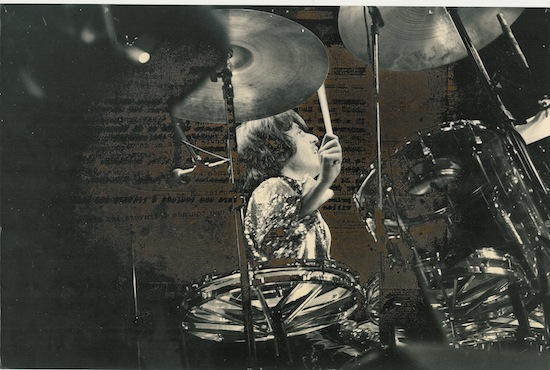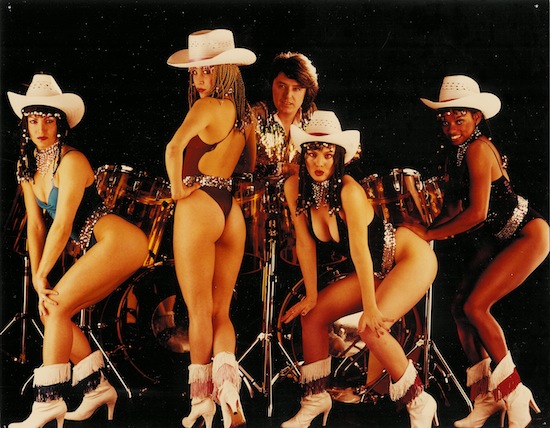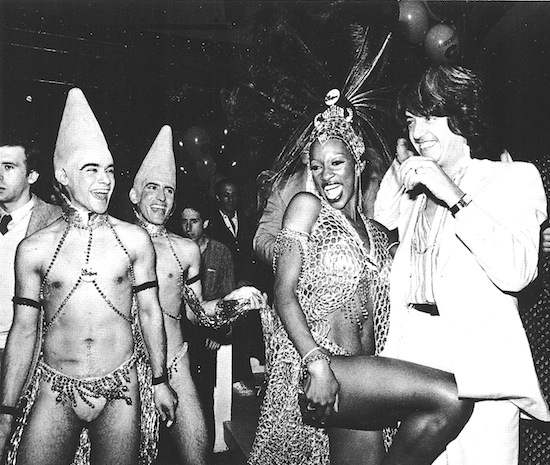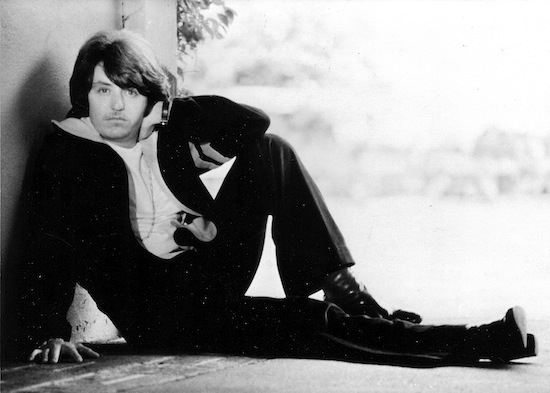It’s nice to start a new year with some classic late-70s and early-80s disco. At least if you’re me. In this case Because Music is doing the world a favour with a new compilation of work by French legend Marc Cerrone. Like most dance producers worth their salt he made his mark with production work for others and under alternate names as much as his own efforts: The Best Of Cerrone Productions includes selections from Don Ray, Kongas, Brigade Mondaine and more, plus many of his all-time jams like ‘Love In C Minor’ and the still astonishing ‘Supernature’. Weaving coolly understated hooks amid relentless, lush arrangements carefully balanced between traditional and electronic instruments, never afraid to break things down or turn on a dime to another path, throughout the collection Cerrone demonstrates both a sharp ear and a willingness to experiment.
Reached by phone in his home country for a quick chat, Cerrone was effortlessly energetic and polite, proud of his work’s impact – we agreed on the virtues of Erasure’s monumental cover of ‘Supernature’ in 1990 – and looking forward to the future.
Has your career been marked by seizing opportunities, a steady progression of work, or a mixture of both and more? And how would you characterise your own work?
Marc Cerrone: Certainly for a 70s composer like myself, we reached for a sense that we could do anything. But the first focus for me was a picture in my mind, that of the public smiling. I always want to record a happy moment, and to do that you start with this picture of the public. How I achieve that is by the choice of the sound, the harmony, who is going to sing – ultimately my objective is to make the public smile. Watch some live clips on my site, you can see people of all ages dancing and they are always smiling! That’s a big gift for me! There’s no greater message in my music – it’s for the body if you want to move it.
Were songs worked out well in advance of recording? Were there basic demos or early mixes?
MC: The composing mostly happened during the recording process, though I always think of the live stage. When I’m in the studio working on the track it’s more for my program, or my tracklist if you want, than a single for the radio. I never wanted to record just to make a smash. For me the writing or producing is simple – when I compose in the studio, it’s bar after bar, instrument after instrument. Yet when you finish a session, it’s better to have the audience experience what you’ve done, face to face – your friends will always say "great" but the public reacts honestly. That for me is the balance.

Are your songs finished when a recording is complete, or is it a decision that you have done the best at the time?
MC: I’m never happy, no matter what. One day, the mix is done, the master is done, but I’m always listening, and going, "Oh shit! Why does the mix sound like this?" I’m not the kind of guy who listens to his own work and goes, "I’m so moved!" No! This is not me. This is why whenever my work gets remixed, I’m happy. It’s another vision of the music, it helps me to forget to what the original work was like!
The selections on the compilation are wonderful, but nearly all of them are the shorter single edits or reduced from the full album cuts. Was there any particular reason for that decision?
MC: You will have to ask the record company! But from my side, I’m so happy the company had the great feeling to release everything again after so many years. It’s big enough for me, I’m really happy about it. If they had to release it all, it would take something like 25 CDs – I really like to make long tracks. Everything on the collection aims to show the power of my work, and if people like it, they can find all of it on the net. There’s probably, more than 450 tracks on iTunes, plus there’s been so many remixes from talented DJs in the past 20 years.

Is there a particular favourite song on the collection which isn’t as well known to a general audience, and why?
MC: In France, I would say Don Ray’s ‘Got To Have Lovin” and ‘Standing In The Rain’ or Revelacion’s ‘The House Of The Rising Sun’ – the public doesn’t know about them, so they feel like completely new records! What is surprising – and I’m very happy about this – is that when the people, whether the public or people from show business, speak to me about acts like Don Ray or Kongas, they do so like it was now – today. To sound like today, that is extremely wonderful.
Finally, steering away from retrospection, what excites you creatively at the moment? What more would you like to achieve?
MC: That’s a hard question – I would say the period of the 70s was more exciting, working with acts like Earth, Wind & Fire and Toto, to do as much work as we did. My regret is not continuing to work with live musicians in the studio like I did back then. But I’m happy in this modern period. I can call Nile Rodgers, have him send something to me by WeTransfer, and in two hours it’s done, bingo! That helps me to have more ambition about the production I’m working on, the way I can involve a lot of people. I’m completely on the internet, the creativity of the new material comes out because of that.



